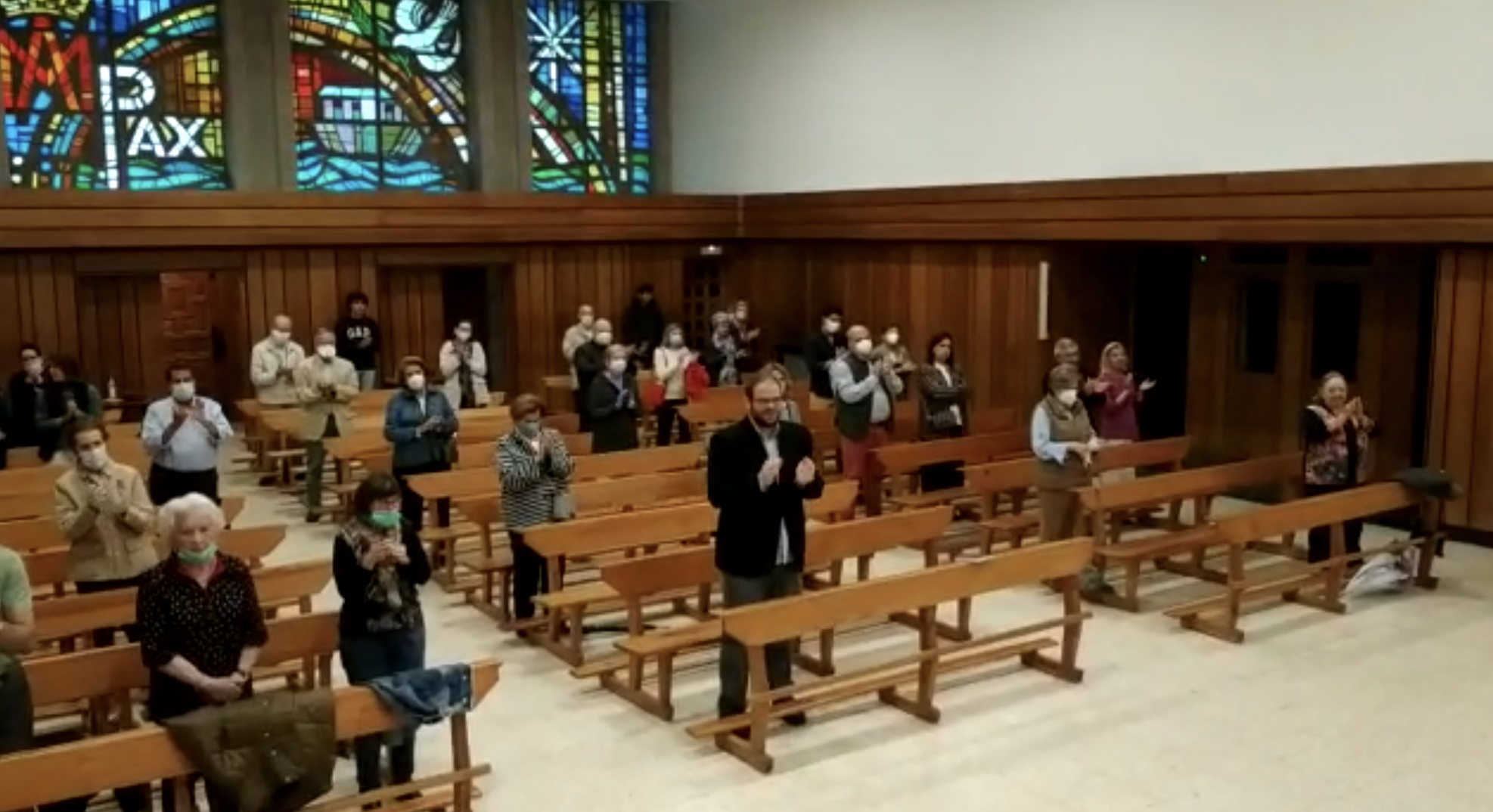The Parish of Our Lady of Peace, in Pamplona (Navarra), has begun to return to normal after the most difficult weeks of the coronavirus in Spain.
Last Sunday, May 10, about 130 people attended the Eucharist in the parish of Our Lady of Peace, in Pamplona (Navarra). The number is close to the new capacity of the church, which would normally accommodate more than 400 people. The restrictions have begun to be lifted after the most difficult weeks of the pandemic in Spain, although the churches have implemented prevention measures to avoid new infections. The faithful can return to the parish, although they must do so wearing a mask and maintaining a distance of more than one meter between them.
“Total normality has returned”, says the parish priest, the Augustinian Recollect José Luis Urriza. The Eucharists have been resumed, although during the confinement they continued to be celebrated with the authorization of the archbishopric. The parish has begun to recover part of the life it had before the outbreak of the coronavirus, thanks to the fact that Navarra has been one of the regions that have entered the first phases of the confinement. However, the new life is marked by a 30% reduction in the capacity of the parish and constant caution.
Many parishioners attended the first Eucharist on Sunday after the quarantine – the most numerous, 130, at 12 o’clock in the morning. There was even a celebration of the golden jubilee of the Augustinian Recollect priest, Jesus the Liberal. “They were eager for the Eucharist,” says Urriza. This is one of the reasons: the spiritual need of the people to meet again with Jesus. Although there are more reasons: “Our parish is big and here they can be safe and calm”.
The church of the Augustinian Recollects has implemented the protocol of prevention against COVID-19, following the guidelines of the Spanish Episcopal Conference. After each Eucharist the pews are cleaned with alcohol. Hand sanitizing gel and the basket for collection can be found at the entrance. There is no choir in the Eucharist; only one person sings. The faithful have to keep their distance and must wear a mask; although 90% of the faithful wear a mask, those who do not wear one are not forbidden to enter, although they recommend its use. As with the exit – which must be ordered and maintained at a distance – the religious ask the parishioners for “responsibility”. “We have seen that behaviour is normal, especially on the way out”, says the parish priest.
Soon all the masses will be resumed at their usual times and funerals will be held again. In spite of this, José Luis Urriza says that the situation will have a negative impact on the parish. In the first place, there will be a logical decrease in the number of faithful due to the restrictions on capacity. But it will also affect the economy, because of all these weeks in which there has been no collection. Nevertheless, “several parishioners have supported the parish financially with their contribution by bank transfer.
The community of religious has maintained its normal life at home during these weeks, following the orders to remain at home. Community prayer has been intensified. In the same way, they have continued to accompany the people who usually come to the parish: those who have lost a relative have been accompanied in their mourning and catechesis has continued to be sent to the children who are preparing for their first communion. Even Urriza sent the Sunday homily to almost 1,000 people for Whatsapp. This accompaniment is expected to continue now, once society has overcome the coronavirus.


